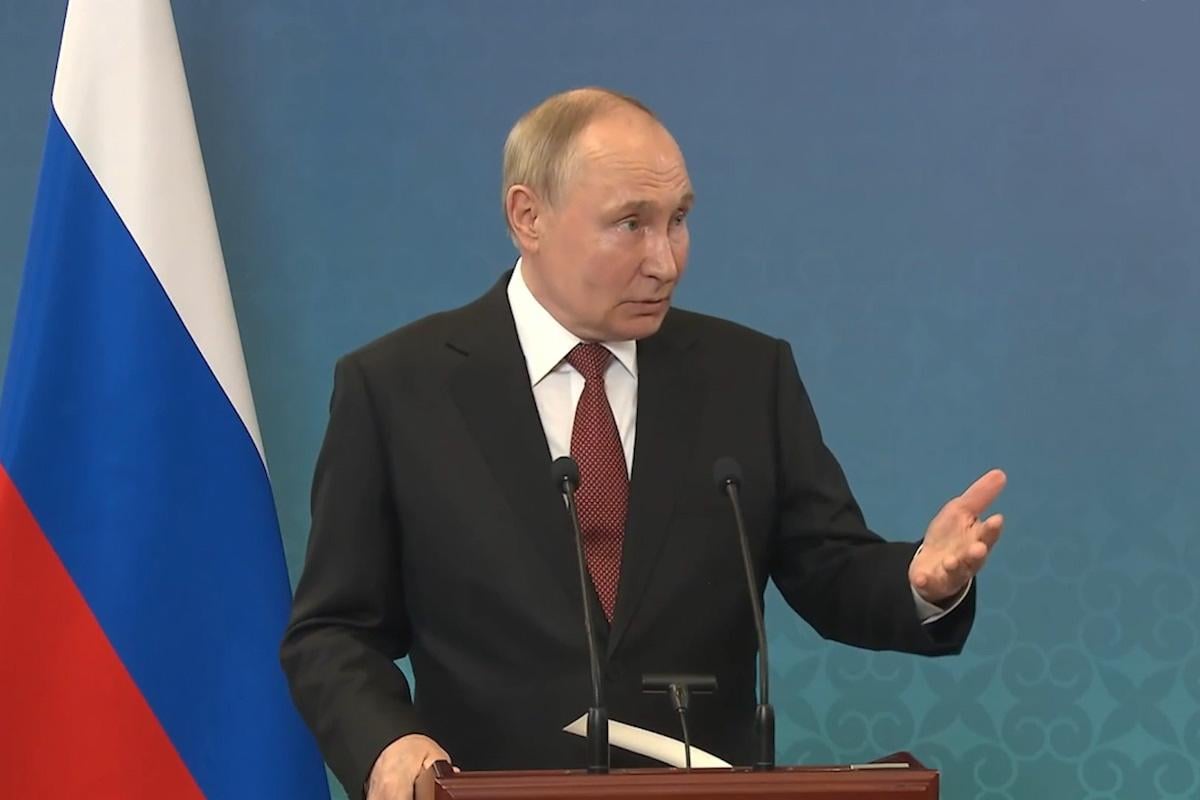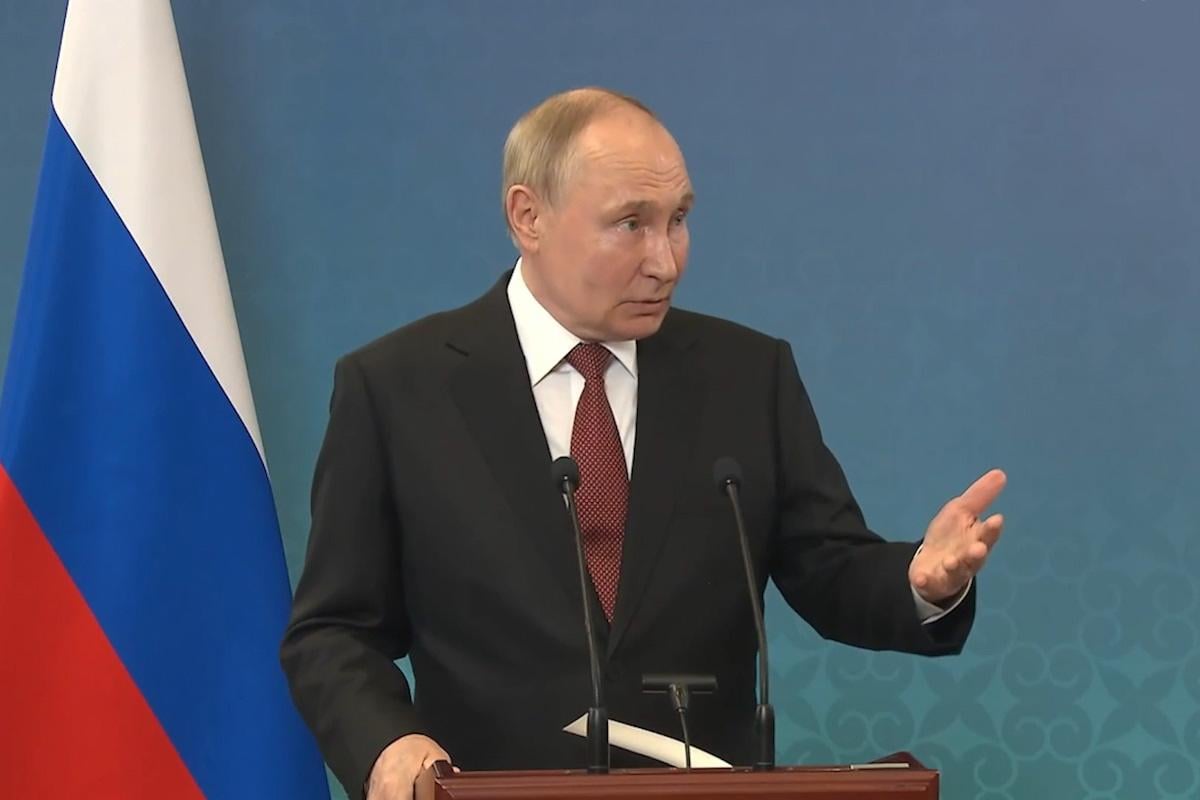“The Russian dictator is worried about the prospect of new restrictions.”, — write: www.unian.ua
The Russian dictator is worried about the prospect of new restrictions.
 Putin is unhappy that private investment is shrinking due to rising credit costs / screenshotVladimir Putin is increasingly worried about the economy of the Russian Federation. The Russian elite believes that it is necessary to settle the war through negotiations.
Putin is unhappy that private investment is shrinking due to rising credit costs / screenshotVladimir Putin is increasingly worried about the economy of the Russian Federation. The Russian elite believes that it is necessary to settle the war through negotiations.Reuters writes that tensions in the Russian economy have been growing in recent months due to labor shortages and high interest rates introduced to fight inflation, which has accelerated amid record military spending. According to sources, this contributed to the formation of the opinion among the Russian elite that it is desirable to settle the war through negotiations.
“Russia is, of course, economically interested in a diplomatic end to the conflict,” said Oleg Vyugin, a former deputy governor of Russia’s Central Bank, citing the risk of growing economic disparities as Russia ramps up military spending.
Until recently, Russia’s $2.2 trillion economy had shown remarkable resilience during the war, and Putin praised senior officials and businesses for defying the toughest Western sanctions.
After contracting in 2022, Russia’s GDP grew faster than that of the European Union and the United States in 2023 and 2024. However, this year the Central Bank and the International Monetary Fund forecast growth of less than 1.5%, although the government predicts a slightly brighter outlook.
Inflation reached double digits despite the fact that the central bank raised the base interest rate to 21% in October.
“We have some problems, namely inflation, a certain overheating of the economy,” Putin said on December 19. “The government and the central bank have already been tasked with reducing rates.”
This year, Russia increased defense spending to a post-Soviet maximum of 6.3% of GDP, which is a third of budget spending. These costs led to inflation. Together with the wartime labor force deficit, they led to an increase in wages. In addition, the government seeks to increase tax revenues to reduce the budget deficit.
According to Vyugin, persistently high rates will put pressure on the balance sheets of enterprises and banks. At the same time, the source noted that Putin was visibly displeased to hear that private investment was shrinking due to rising credit costs.
Russian coal and steel producer Mechel, owned by businessman Ihor Zyuzin, has announced a debt restructuring that is under pressure from low coal prices and high interest rates.
Some of Russia’s most powerful businessmen, including Rosneft chairman Igor Sechin, Rostec chairman Sergei Chemezov, aluminum magnate Oleg Deripaska and Oleksii Mordashov, the largest shareholder of the Severstal steel company, have publicly criticized high interest rates.
Trump threatened Russia with tariffs and sanctionsNew US President Donald Trump has made ending Russia’s full-scale invasion of Ukraine one of the key promises in his election campaign. According to him, he “does not seek to harm Russia”, but these measures are necessary.
Axios analyst Ben Berkowitz believes that such threats by the new US president are less effective than in the past because Russian trade has declined in the years of full-scale war.
You may also be interested in news:
- Russia’s oil business in the Arctic is under threat: fatal consequences of US sanctions
- Trump has threatened to impose 25% tariffs on Mexico and Canada in the coming days, – FT
- India is preparing measures in response to Trump’s threats: Bloomberg disclosed the details
